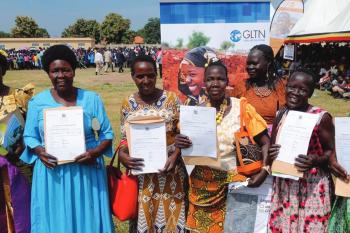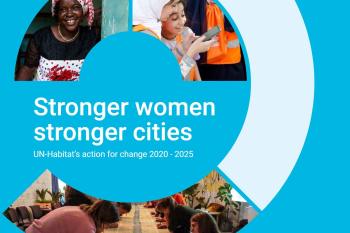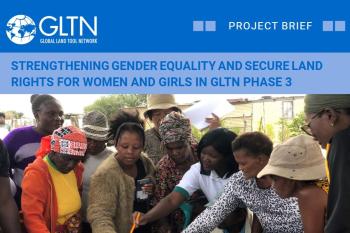
Read More
Gender Strategy for Land-at-Scale Uganda
Women’s Land Rights (WLRs) are fundamental human rights, foundational to gender equality and women’s dignity and instrumental in improving food security, effective climate action, poverty eradicati

Despite progress on women’s rights, rights to land and security of tenure are not enjoyed equally by women and men in many parts of the world. This goes against international human rights, and also impacts negatively on households and the economy. Gender issues related to land are complicated. They involve sensitive social and cultural territories and challenge deeply rooted power structures. At the same time, we know that for a land tool to be effective, it needs to go beyond a technical lens and also consider social dimensions such as gender.
The Global Land Tool Network’s work to date on criteria for designing new, or evaluating existing, land tools from a gender perspective is presented in this brochure. The gender evaluation criteria framework explores how to judge whether a large-scale land tool is sufficiently gender-responsive, to identify where more work needs to be done, and possible entry-points to make a tool equally beneficial to women and men.
Download English | French | Arabic | Spanish

Women’s Land Rights (WLRs) are fundamental human rights, foundational to gender equality and women’s dignity and instrumental in improving food security, effective climate action, poverty eradicati

This publication presents a summary of UN-Habitat’s gender equality impact over the past five years, in line with the Beijing reporting cycle.

GLTN’s institutional commitment to gender equality and secure land rights for women and girls has been at the core of its work since inception in 2006.